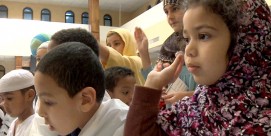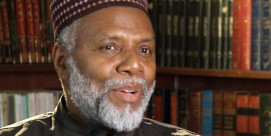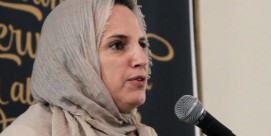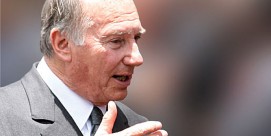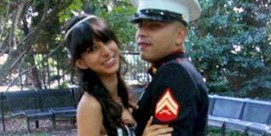Robin Lovin: What Went Wrong?
These remarks were presented at a 9/11 memorial symposium sponsored by the Maguire Center for Ethics and Public Responsibility at Southern Methodist University. A version also appeared in the August 23, 2011 issue of The Christian Century.
The striking thing about 9/11 was the sense of unity it produced. In the immediate aftermath of 9/11, Americans were united. We had the sense that we had all been attacked, that we were all in this together, and that we all knew what we were defending.
References to Pearl Harbor sprang readily to mind. This would be our moment to stand up and stand together, the way our parents and grandparents had come together to defend freedom in the middle of the last century. And because we knew that the values of democracy, and liberty, and personal choice that we were defending are universal human aspirations, we were confident that the rest of the world would stand with us.
At least that was how it seemed at the time. The striking thing, ten years later, is the polarization of our domestic politics and the fragmentation of our global alliances. The historical analogies that now seem most appropriate come not from our times of national unity, but from the decades when we were most divided against ourselves. The news as I hear it from Washington almost every day does not remind me of the “greatest generation” or even of the crusading years of the Cold War. For someone who reads a lot of history, the news from Washington recalls the bitter ideological divisions that gridlocked our national government in the decades before the Civil War. The economic news of the day reminds me of the conflicts of race, class, and ethnicity that marked the end of the Gilded Age.
What went wrong? I think that where we find ourselves today reflects a lack of moral and political realism in our adjustment to the world after 9/11. Our immediate reactions were unifying and effective, but our long-term response has often been dysfunctional.
In some respects, this lack of realism after 9/11 was merely a continuation of the unrealistic way that we were relating to the world before 9/11. Ten years and one day ago, we were still celebrating the tenth anniversary of the end of the Cold War and the beginning of a new era of prosperity and global democracy. No one imagined that global capitalism would diminish America’s power in the global economy, rather than expand it; and nobody seemed to be thinking that the end of superpower rivalry might unleash new kinds of threats that had been kept in check by the superpowers trying to watch their own backs. Afghanistan became a terrorist haven because of the collapse of the Soviet Union, and 9/11 happened in part at least because we weren’t being sufficiently realistic about the new world situation to see that problem coming.

So we weren’t being realistic about the new global realities before 9/11. We tend to talk about 9/11 as “the day everything changed.” And so it did, in many individual lives and in some ways in our politics as a whole. But that simple phrase that we have heard so often this week slogan masks a more complex reality. William Dobson wrote an essay in Foreign Policy a few years back that he titled, “The day that nothing much changed.” That’s too simple, too; but what Dobson was trying to point out is that the changes that we began to take seriously on 9/11 had begun at least a decade earlier, and we had not begun to think about how the world would be different over the long run because of them.
We still haven’t done that.
Immediately, we responded well to the crisis, and many of the remembrances on this 10th anniversary reflect a kind of nostalgia for the unity, effectiveness, and courage of those first responses. But just as a political realist knows that history does not end, a moral realist has to recognize that courage keeps fear in check. It does not eliminate it. And an effective response does not mean that all of our problems are solved. It means we have gained some breathing space to figure out what the next problem is going to be.
There was courage and unity after 9/11, but there was also fear and suspicion. Fears provoked by the background of the hijackers spilled over into ethnic profiling and helped to fuel a general antagonism toward immigrants. Fear also gave rise to aggressive expressions of Christian nationalism. It was confusing to watch military operations targeted against a terrorist network and its individual leaders, rather than against another state. We were not sure who the enemy was or how we would know when the war was finished, and the early assurances that this was not a war against Islam did not always hold up against the crusading rhetoric that takes over precisely when we are not quite sure what we are doing. We have decided that we like these ultimate choices between good and evil, God and the devil, because they spare us the trouble of understanding the ambiguous realities and interim choices that will have to be made on the way to a different kind of world order than we had before 9/11, and, more importantly, before 1989.
We are still waiting for a strategic vision that can guide us in a multipolar world where states are not the only actors, and where religion and business seem to be competing to determine which of them will fill the vacuum created by the diminished powers of government.
Business and religion each claim a comprehensive solution to the disputes that split communities and set political parties against one another. Business insists that the market can best allocate resources and, over the long run, do the most to increase our wealth, so we should all agree, whatever our individual preferences might be, to live by the judgments of the market. Religion, at least some versions of religion, insists that it has a way of life that transcends cultural change and moral uncertainty, so we should all agree, whatever our individual preferences might be, to live by the judgments of God. Both Islamic and Western religious movements, usually characterized as “fundamentalist,” insist that market forces and the desires they create must not be allowed to shape the lives of the faithful. And business around the world insists that religion must not interfere with freedom, meaning especially the freedom of people to desire what business has to sell and the freedom of business to sell it.
Meanwhile, the wider public, unpersuaded by either religious or economic fundamentalists, is like an individual suffering from post-traumatic stress disorder. We are unable to return to the old world we thought we understood, but we cannot tolerate the noise and uncertainty of the new world, either. There are no quick solutions to these problems, and certainly no simple ones. But the future of freedom may depend on whether a traumatized American public can tolerate a higher level of ambiguity, a world of interim solutions and recurrent problems where nothing is as black and white or as red, white, and blue as we would like it to be.
Robin Lovin is the Cary M. Maguire University Professor of Ethics at Southern Methodist University.

